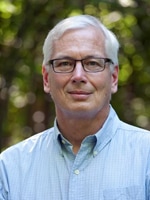
I am a retired teacher, naturalist and writer with a love for all aspects of the natural world, especially as they relate to seasonal change. I live in Peterborough, Ontario, in a region known as the Kawartha Lakes, which has habitat types typical of both southern and northern Ontario. This makes for a high diversity of species.
The purpose of this website is three-fold. First, it serves as an archive for the more than 700 nature columns I’ve written since 2004. Secondly, it contains an up-to-date list of recent nature sightings in the Kawarthas. I encourage residents and visitors to submit their observations by emailing me at dmonkman1@cogeco.ca Finally, the website contains information on how the climate of the Kawarthas is changing.
I am particularly concerned by the climate crisis and how a changing climate is reshaping many aspects of the natural world. This includes phenology, namely the seasonal timing of natural events such as migration, nesting, leaf-out, and even the fall colours. My two “Nature’s Year” books cover the typical phenology of the Kawarthas and Central and Eastern Ontario in general. A knowledge of phenology adds interest to the observation of events in nature – especially when events occur earlier or later than usual.
Having been a classroom teacher for 33 years, I also have a keen interest in environmental education and how best to help young people acquire a love and appreciation for the natural world. This was my inspiration in writing “The Big Book of Nature Activities” with Jacob Rodenburg.
I often ask myself why it is that some people develop a passion for wildlife, the outdoors, and the protection of natural spaces, while others are indifferent at best. If children have no real understanding or knowledge of the natural world around them —right in their own backyard to begin with — then how will they ever develop a sense of what is being lost? How then can we expect them to live by an environmental, conserving ethic, or be outraged when yet another wetland is slated to be drained or by the absence of aggressive action on climate change? In a world of video games and highly regimented schedules with little time left over to enjoy the outdoors, I am deeply concerned that people are becoming more disconnected from nature than ever before. However, to use a term coined by Harvard University biologist E.O. Wilson, humans are born “biophylic” —loving nature. In other words, all of us begin life as budding biologists and, with the proper support from parents, grandparents, youth leaders, and teachers, this interest in the natural world can last a lifetime.